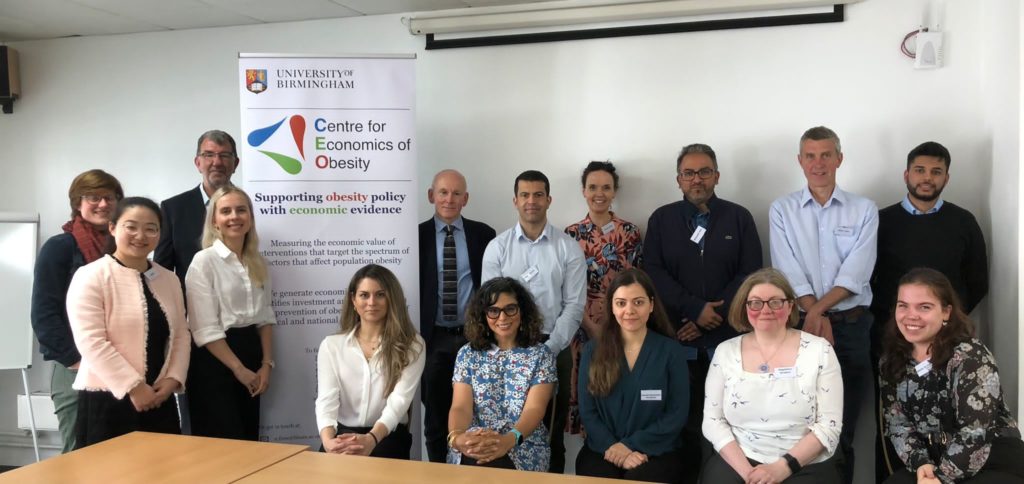HEU’s Emma Frew talks about why economists are interested in obesity and outlines the work of the NIHR-funded Centre for Economics of Obesity.

Obesity – it’s not my fault
Often, we hear that the way to solve obesity is for people to eat less and move more – if only it were that simple! Despite decades of ‘high-agency’ policy that relies on individuals taking responsibility for action such as the 5-a day campaign, or setting targets for physical activity, population-levels of obesity are still rising…so clearly this type of policy is not working – why? Well, there is evidence to confirm obesity is a complex chronic life-long condition with the causes being system-wide including our biological make-up; the physical environment that we live, work and play in; the food-system surrounding us, including how food is produced, priced and consumed; social norms; as well as our individual psychology. And, if we know that the determinants are so complex, then so too are the policy options required to reduce obesity levels.
The Centre for Economics of Obesity

Obesity is a costly condition for the health service and wider society, as well as to the individuals who are living with the disease. It is also a major driver of health inequalities with children living in the most deprived parts of the country at far higher risk of developing the disease, compared to children in the least deprived parts – and these inequalities are continuing to worsen. It impacts our economic productivity with adults having lower than average earnings and being more likely to take early retirement due to ill-health. These are all major problems for the NHS, and for the Treasury. Yet, despite this, little is known about the economic evidence for a ‘whole-system’ prevention policy that includes policy outside of the health sector, such as interventions within education or transport– and that is what the NIHR-funded Centre for Economics of Obesity at the University of Birmingham is all about.
Our Research

Our research spans a wide range of applied and methodological projects. We collaborate closely with key partners such as local authorities, combined authorities, schools, universities, and blue and green space partners. Across our applied projects we are working to generate evidence on the cost and benefits of alternative options that are about encouraging people to eat more healthily and be more physically active. This is not about targeting individuals with more information on what they should or should not be doing without changing anything else…these policies are about making it easier for people to live healthier happy lives and creating the right conditions for people to thrive.
Our methods
Most of the interventions we are evaluating are complex in nature. This means that their design is outside of the control of the researcher and have costs and outcomes that are wide ranging but should be accounted for within the analyses. We are adopting methods such as cost-benefit analysis to estimate the social value from a new intervention relative to ‘business as usual’ tracking both the fiscal and economic net present value over time. A key part of our methods is about being transparent on who pays and who benefits across the system – to help facilitate cross-sectoral working and move away from silo-budgeting towards a more co-ordinated approach. This is not easy; however we are determined to work closely with our stakeholder advisory group and public advisory group to ensure that the evidence we produce is useful for informing policy at all levels.
